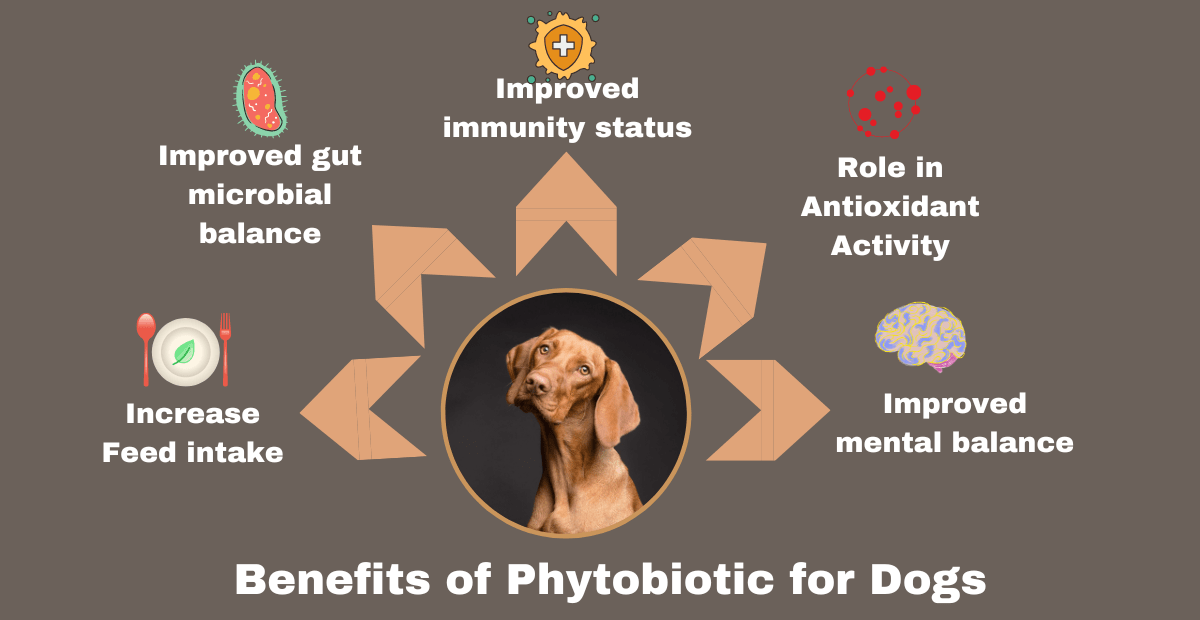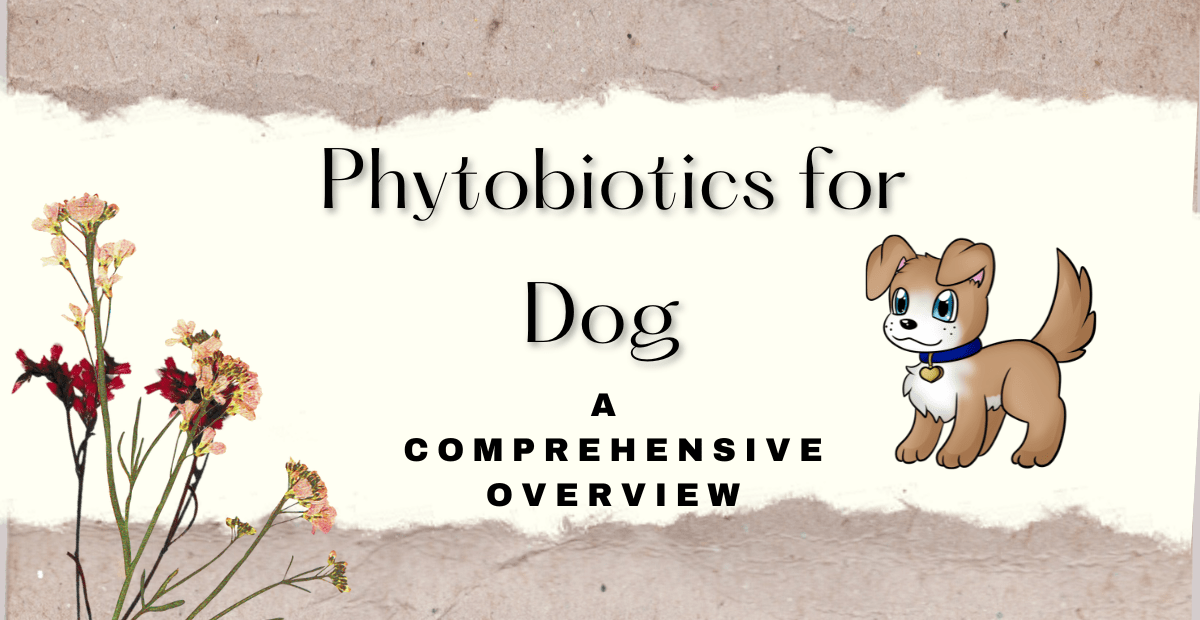Last updated on January 26th, 2024 at 05:34 am
The term “phytobiotics” refers to a broad spectrum of bioactive substances that can be obtained from different plant sources. The performance and overall health of dogs can be influenced by the supplementation of phytobiotics for dogs. According to the literature, the use of phytobiotics is mainly focused on the poultry and pig industry but nowadays it also started to be used in dogs also. In this article, we discussed some facts related to phytobiotics for dogs.
What are the sources of phytobiotics for dogs?
The leaves, roots, tubers, or fruits of herbs, spices, and other plants are the source of phytobiotics. They could be obtainable as extracts (essential oils), in solid, dried, and ground form. Phytobiotics, or products of plant origin, are becoming more and more popular among researchers and pet manufacturers. Some examples of these items are thyme, oregano, turmeric, garlic, etc.
What are the beneficial effects of phytobiotics for dogs?
The positive benefits of phytobiotics can be attributed to their ability to increase the consumption of feed and the secretion of digestive enzymes, immune system stimulation, to their antibacterial, anthelmintic, antiviral, or anti-inflammatory properties, or to their antioxidant status. These positive impacts result in an improvement in performance of dogs.

Feed intake
The main benefits of phytobiotics for dogs are that they improve the flavor and palatability of the food, can reduce flatulence, and can increase the formation of digestive fluids like saliva and bile.
Improved gut microbial balance
Through antibacterial activity or a beneficial increase of the eubiosis of the microbiota, phytobiotics can specifically affect microorganisms. Higher performance is the outcome of improved nutrient utilisation and absorption.
- It has been observed that sanguinarine (extracted from bloodroot plants) has beneficial effects on intestinal mucosa integrity and gut microbiota.
- Supplementation of arabinogalactan (extracted from Larix tree) increases the count of faecal health benefits microbes like bifidobacteria as well as lactobacilli and reduces the count of health-negative bacteria like Clostridium sp. in dogs (Grieshop et al. 2002).
- In another research experiment conducted by Faehnrich and colleagues (2019), showed that feeding Sangovit Extra (isoquinoline alkaloids derived from Macleaya cordata) to beagle dogs increased the ratio of acetic acid or increased the total lactate values in faeces as a result of metabolic activity of gut bacteria in healthy dogs.
Improved immunity status
The role of phytobiotics on immunity status may be improved by the growth of immune organs like the spleen, and thymus, as well as the numbers and activities of many interdependent cell types like T, B lymphocytes, macrophages, and natural killer (NK) cells. These are all significantly influenced by polysaccharides derived from many different plants and also enhance the cellular and humoral immune response.
- Isoquinoline alkaloids improved the immunological parameters like IgA and IgG levels in blood plasma and also regular ratios of phenotypes of lymphocytes in beagle dogs.
Role in Antioxidant Activity
Pets’ antioxidant status can be improved with phytobiotics, which can scavenge free radicals and prevent multiple illnesses that are brought on by them.
- Using Macleaya cordata extract can lower blood levels of haptoglobin, which are connected to inflammation.
- Additional plant species with antioxidant properties include ginger, curcuma, anise, coriander, and plants high in flavonoids (like green tea) or anthocyanins (like many fruits).
Improved mental balance
Serotonin is a hormone and neurotransmitter, amongst others responsible for the (mental) balance of organisms. Supplementation of some phytobiotics increases the levels of serum tryptophan, as tryptophan is the precursor of serotonin.
So, that’s why it plays an important role to reduce stress in dogs and maintain mental balance as well.
What is the dose of phytobiotics for dogs?
Some commercial source like Sangrovit Extra (isoquinoline alkaloids derived from Macleaya cordata) is given in beagle dogs at the rate of 1.2 g per kg feed, according toFaehnrich and colleagues (2019).
Conclusions
We have already discussed the beneficial effects of phytobiotics for dogs already in the above article. In summary, phytobiotic improved feed intake, gut microbiota, immunity as well as antioxidant status and also help to maintain mental balance in dogs. Recently, phytobiotics have been utilized in the pet sector to improve dogs’ health and wellbeing.
Read More: The Benefits of Dietary Essential Fatty Acids for Pets’ Health in a Bigger Way
References
Faehnrich, B., Pastor, A., Heide, C., Kröger, S., & Zentek, J. (2019). Effects of isoquinoline alkaloids from Macleaya cordata on physiological, immunological and inflammatory parameters in healthy beagles: Alkaloids in dog nutrition. Journal of animal physiology and animal nutrition, 103(2), 661-667.
Grieshop, C. M., Flickinger, E. A., & Fahey Jr, G. C. (2002). Oral administration of arabinogalactan affects immune status and fecal microbial populations in dogs. The Journal of nutrition, 132(3), 478-482.
Mohammadi Gheisar, M., & Kim, I. H. (2018). Phytobiotics in poultry and swine nutrition–a review. Italian journal of animal science, 17(1), 92-99.




